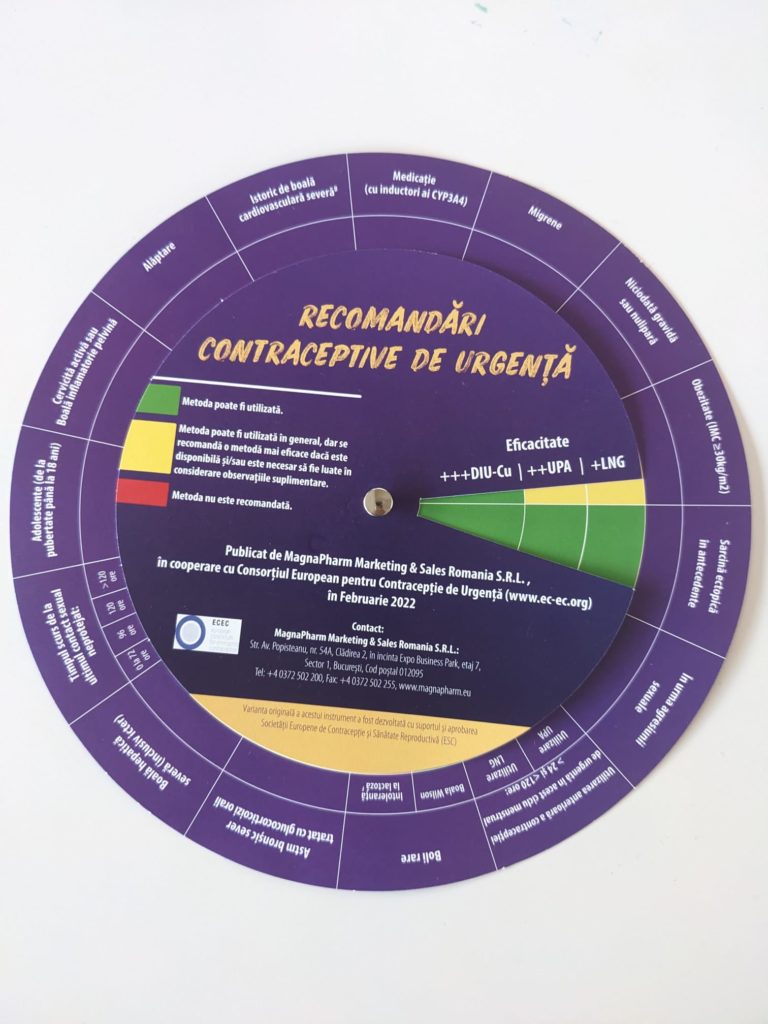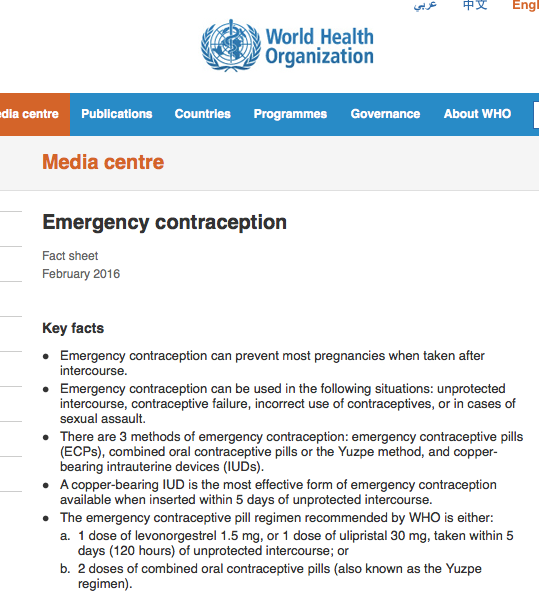Similar Posts
Stable rate of EC’ use in Spain
October 2022. The Spanish Society of Contraception (SEC) just published the findings of the Contraception in Spain 2022 Survey (“Anticoncepcion en España 2022”). With this survey SEC aims to strengthen the knowledge on the female population’s habits with regards to contraceptive methods use in Spain. The survey was conducted between July 21 and August 17,…
Catalonia: new EC provision protocol for public health services
July 2022. The Catalan Health Department just published a new protocol for emergency contraception (EC) provision in public health services. The protocol now includes LNG and UPA EC pills, and also the insertion of the Cu-IUD. According to data estimates included in the document, in Catalonia in 2020 about 89% of EC pills were sold…

Romania: New EC counseling tool
In Romania, MagnaPharm has translated and adapted the EC Wheel to help strengthen pharmacists’ knowledge on EC methods and counseling. The EC Wheel was developed in 2016 by ECEC with financial and technical support from the European Society of Contraception and Reproductive Healthcare (ESC). This tool summarizes the UK Faculty of SRH and WHO’s recommendations…
EU Parliament urges Polish authorities to repeal law restricting access to emergency contraception
December 2020. On November 26, the Members of the European Parliament adopted a resolution condemning the setback to women’s sexual and reproductive rights in Poland, and drawing attention to the legal obligation of the European Union to uphold and protect these rights. The resolution also urges Polish authorities to repeal the law limiting access to the…
Switzerland: a qualitative study of young women experiences obtaining EC in pharmacies
November 2020. Last April, Unisanté published “Remise de la contraception d’urgence en pharmacie : une étude qualitative sur l’expérience des clientes”, the report of a qualitative research exploring the opinions and perceptions of young women who obtained EC in community pharmacies in Switzerland. Individual face-to-face interviews were conducted between April and August 2019 with 30 women…
EMA recommends double dose of LNG EC when used with enzyme-inducers
On May 2016, the European Medicines Agency (EMA) recommended the use of a non-hormonal emergency contraceptive (EC) when a woman in need of EC is using other interacting medicines (such as the HIV medicine efavirenz and ritonavir, certain medicines for tuberculosis and epilepsy, and herbal medicines containing St John’s wort). If using a cooper IUD…
